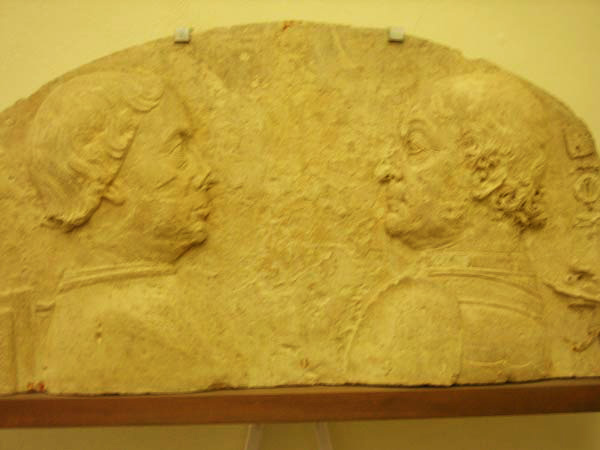Architecture and Memory
The Renaissance Studioli of Federico da Montefeltro
Robert Kirkbride
When Federico entered the service of the duke of Milan, his younger brother, Ottaviano, had already been living in Milan to cement peace between Duke Visconti and Bernardino degli Ubaldini. In 1437, Bernardino died in Cremona, bequeathing to his sons a castle and a cavalry force. Being inclined more to scholarly than to martial pursuits, Ottaviano gave his share of the militia to Federico, who was suddenly the captain of a formidable mercenary army (Pernis and Adams, Montefeltro and Malatesta, 21-23). Noted for his learnedness and discretion, Ottaviano is often represented in official portraits as a "twin" or "shadow" to the duke. He and Battista, whose education he oversaw following her move to the Urbino court, provided continuity of leadership in Urbino's affairs during Federico's absence. Before marrying Federico, Battista had studied Greek and Latin with Martino Filetico, a student of Guarino (Pernis and Adams, 50-57). Following Federico's death in 1482, Ubaldini served as regent, providing administrative continuity until Guidobaldo's wedding to Elisabetta Gonzaga (sister-in-law to Isabella d'Este) and his official ascension to the status of duke on 11 February 1488. During his regency, Ubaldini oversaw Guidobaldo's education as well as the completion of numerous architectural projects, including the palace at Gubbio and its studiolo.
Source: Photo by author with permission of La Soprintendenza per i beni storici e artistici delle Marche
